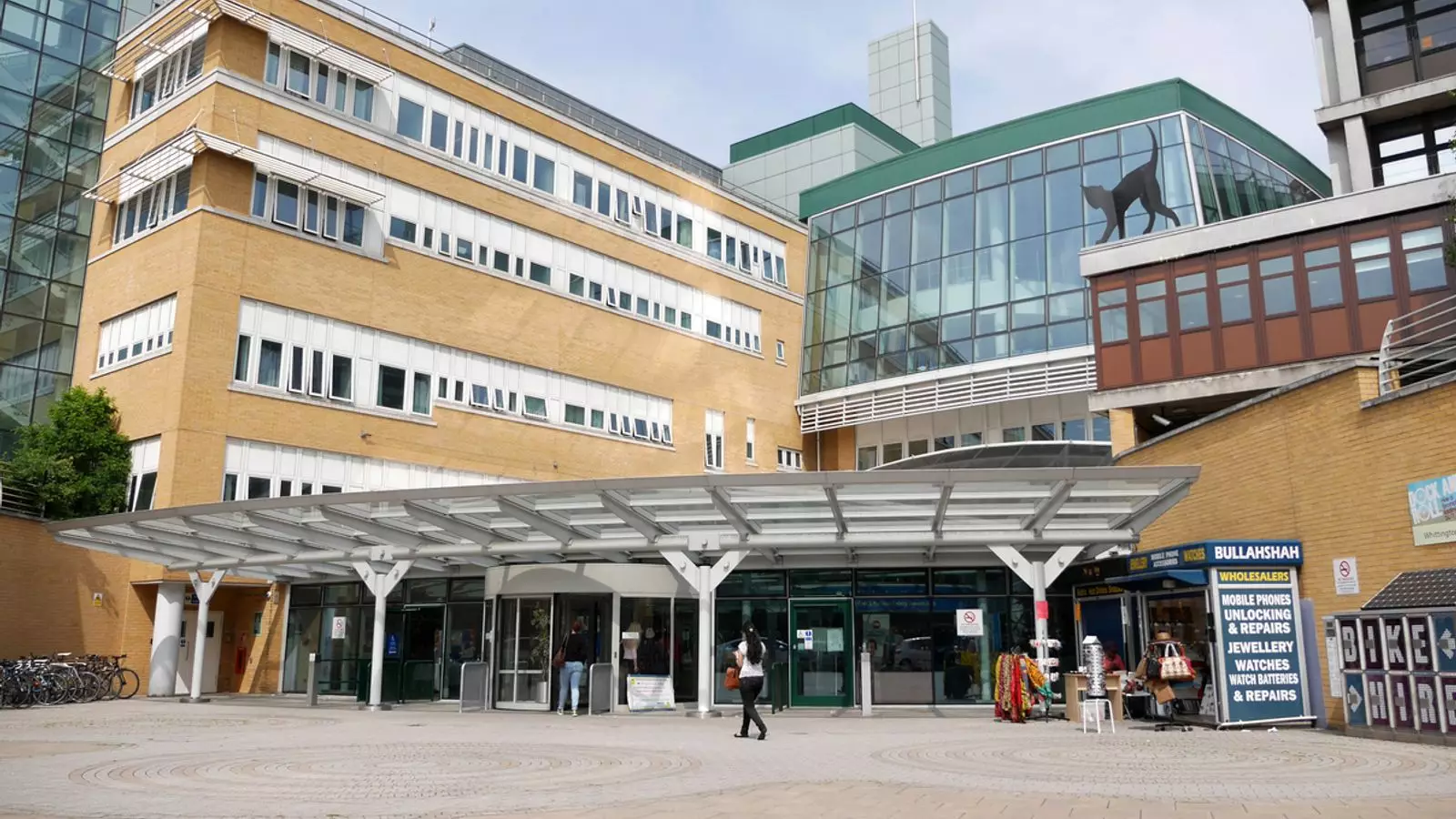The National Health Service (NHS) in the United Kingdom is currently confronting an unprecedented winter crisis, characterized by overwhelming pressures stemming from a wave of illnesses known as a “quad-demic.” This situation involves a synergistic outbreak of flu, COVID-19, norovirus, and respiratory syncytial virus (RSV), significantly stretching the resources of hospitals. In response to this dire circumstance, healthcare providers are innovating roles, such as that of a “corridor nurse,” aimed at addressing the increasingly alarming overflow of patients. As hospitals across the country declare critical incidents, the health service is navigating uncharted territory, with implications for patient care and workforce morale.
Whittington Hospital, located in north London, is one of the hospitals leading the charge with its recent job advertisement for registered nurses who can provide care in corridors when bed space is insufficient. The term “corridor care” has gained traction, with social media amplifying the conversation around it. This scenario is not isolated; many hospitals nationwide are compelled to place patients in corridors due to the unrelenting demand for care, a sign of the system’s strain. Such practices evoke questions regarding the quality of care provided and the ethical implications of using corridors as makeshift treatment areas.
The Whittington Health NHS Trust acknowledges the inadequacies posed by this practice, assuring that corridor care is only a measure of last resort. In their communication, they express appreciation for the hard work of their staff while simultaneously apologizing for the subpar experiences patients may encounter. This dual narrative—of pride in their workforce and concern for patient care—highlights the delicate balance the NHS must maintain while tackling pressing demands.
Government Response and Public Perception
The situation has caught the attention of key political figures, including Health Secretary Wes Streeting, who reflects on the grim realities faced in emergency departments. In an unvarnished moment of candor, he shares his observations of patients in distress, noting that even on what is deemed a “good day,” the conditions remain harrowing. The prevalence of corridor care is concerning, raising alarms about the normalization of such practices within the health system. Streeting vehemently posits that corridor care should never be deemed acceptable, underscoring the moral obligation to provide high-quality care in dignified environments.
The sentiments echo throughout the healthcare community. Ian Higginson of the Royal College of Emergency Medicine points out the unfortunate normalization of corridor care. It serves as a troubling indicator of chronic systemic failings that extend beyond the immediate issues of staffing and bed availability. With the words of Dr. Adrian Boyle ringing clear, the message is unequivocal: care in corridors not only compromises safety but also dehumanizes patients, creating an environment that is untenable for all involved.
The ramifications of this crisis extend far beyond immediate patient care; they impact the very foundation of NHS values. The merging of healthcare delivery and emergency crises raises questions about the efficacy and sustainability of the system. It compels society to reflect on what it means to provide healthcare in a manner that maintains dignity, compassion, and efficacy. As the resolute effort to care for patients persists, the emotional toll on healthcare providers also cannot be overlooked. The psychological burden of witnessing distressing conditions while navigating systemic shortcomings can lead to burnout and demoralization—a trajectory that can threaten the long-term viability of the NHS workforce.
The emergence of corridor nurses as a response to a winter crisis has illuminated critical issues within the NHS. While creating roles to meet the needs of an overwhelmed system is a necessary step, it serves as a stark reminder of the urgent need for systemic reform. The conversation around corridor care must expand beyond remedying immediate challenges; it should lead to comprehensive changes that prioritize patient dignity, support healthcare providers, and aim for a healthcare model that is both humane and effective. The future of the NHS depends on these essential conversations and actions taken today.


Leave a Reply